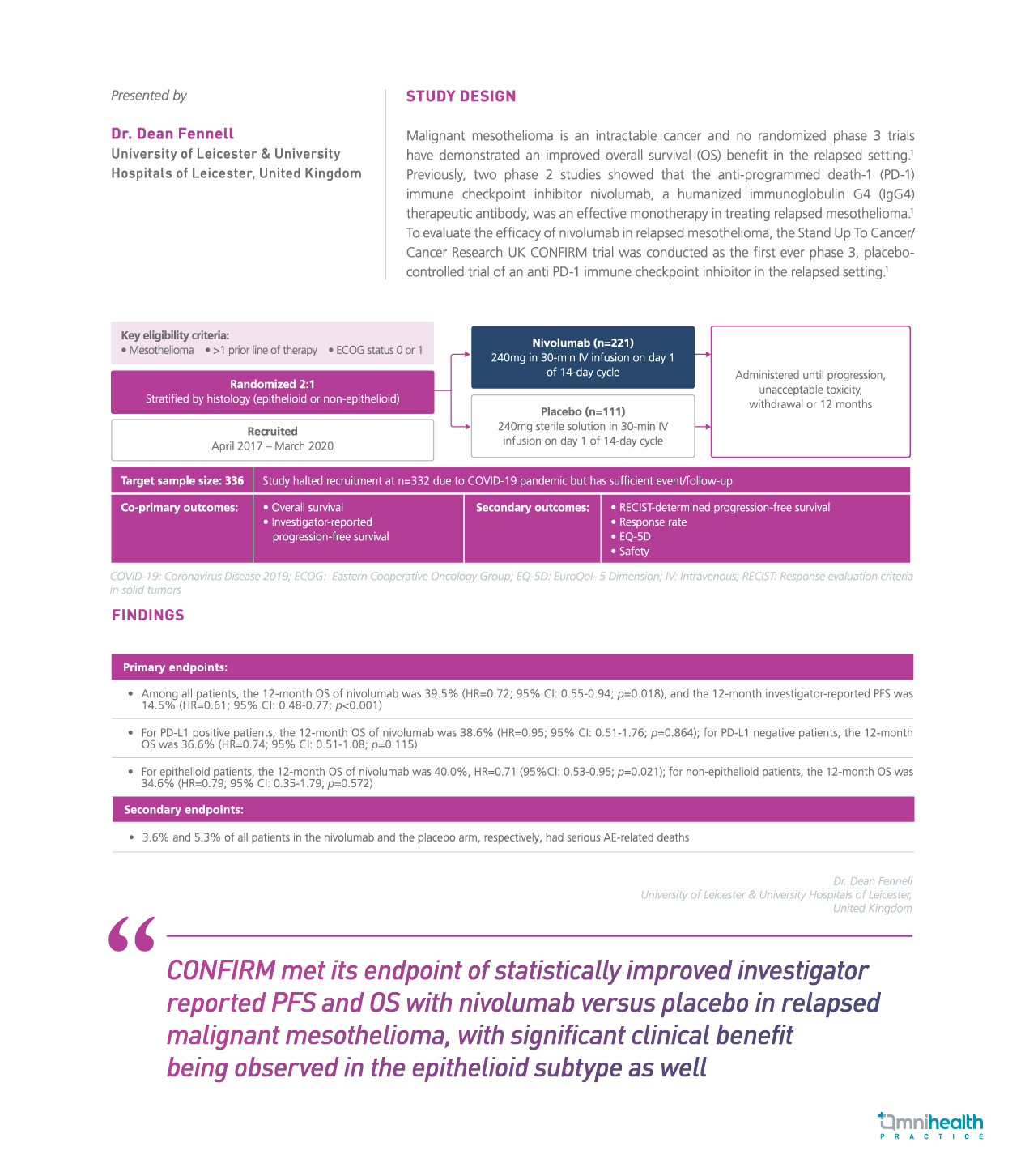CONFERENCE UPDATE:WCLC 2020
The first ever phase 3, placebo-controlled study of nivolumab in relapsed malignant mesothelioma CONFIRMed its survival benefits
27 Feb 2021

Related Articles
CONFERENCE UPDATE:WCLC 2020
The first ever phase 3, placebo-controlled study of nivolumab in relapsed malignant mesothelioma CONFIRMed its survival benefits
